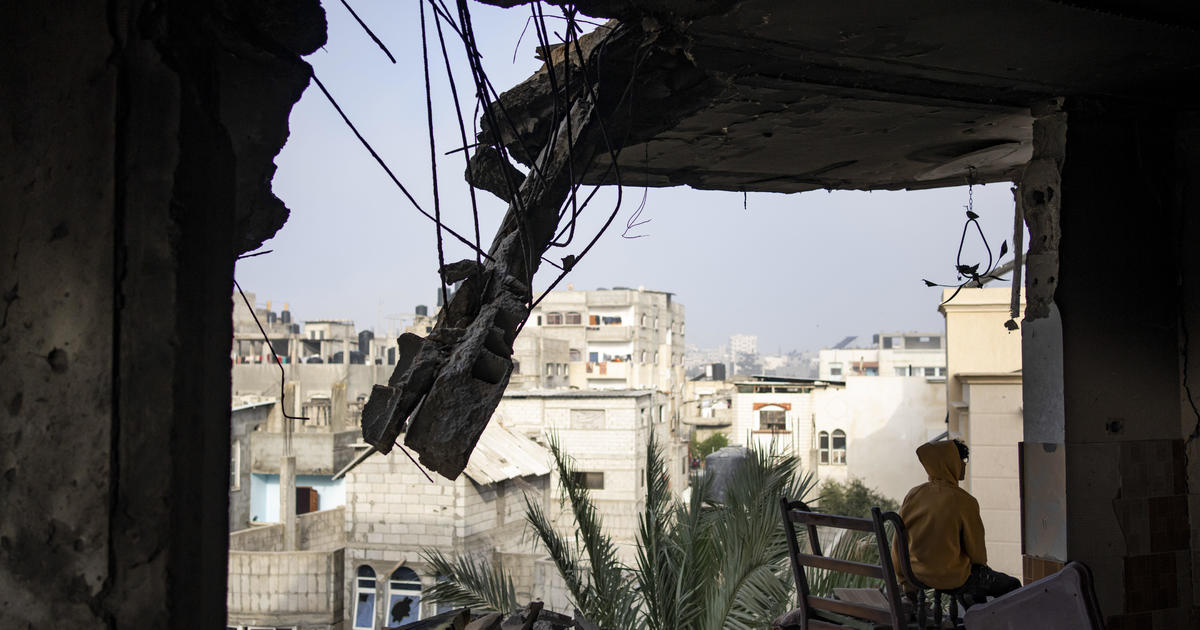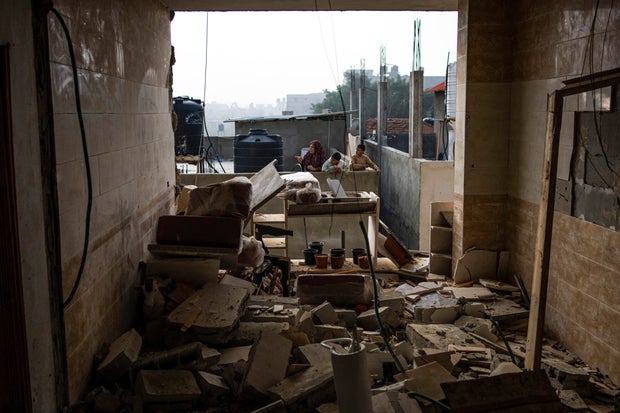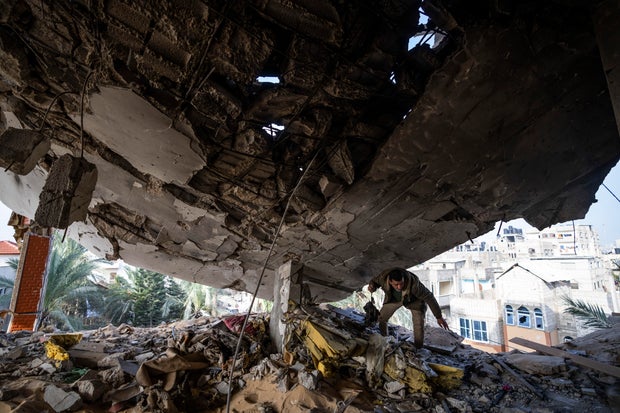Israeli airstrikes killed at least 28 Palestinians in Rafah early Saturday, hours after Israel’s prime minister said he asked the military to plan for the evacuation of hundreds of thousands of people from the southern Gaza city ahead of a ground invasion.
Benjamin Netanyahu did not provide details or a timeline, but the announcement set off widespread panic. More than half of Gaza’s 2.3 million people are packed into Rafah, many after being uprooted repeatedly by Israeli evacuation orders that now cover two-thirds of Gaza’s territory. It’s not clear where they could run next.
Word of the invasion plans capped a week of increasingly public friction between Netanyahu and the Biden administration. U.S. officials have said an invasion of Rafah without a plan for the civilian population would lead to disaster.
Israel has carried out airstrikes in Rafah almost daily, even after telling civilians in recent weeks to seek shelter there from ground combat in the city of Khan Younis, just to the north.
Overnight into Saturday, three airstrikes on homes in the Rafah area killed 28 people, according to a health official and Associated Press journalists who saw the bodies arriving at hospitals. Each strike killed multiple members of three families, including a total of 10 children, the youngest three months old.
Fatima Shbair / AP
Fadel al-Ghannam lost his son, daughter-in-law and four grandchildren in one of the strikes. Standing amid the rubble, he said the strike tore the bodies of his loved ones to shreds.
He feared even worse, with the looming ground invasion of Rafah and said the world’s silence has enabled Israel to proceed. “To this day, the world has not been fair to us and given us our rights,” he said.
In Khan Younis, the focus of the current ground combat, Israeli forces opened fire at Nasser Hospital, the area’s largest, killing at least one person and wounding several, said Ashraf al-Qidra, a spokesman for the Gaza Health Ministry.
He said medical staff are no longer able to move between the facility’s buildings because of the intense fire. He said 300 medical personnel, 450 patients and 10,000 displaced people are sheltering in the hospital.
The Israeli military had no immediate comment.
A rift with Washington
The steadily climbing Palestinian death toll— now at almost 28,000 after four months of war, according to Gaza health officials — has contributed to the friction between Netanyahu and Washington.
Israel holds Hamas responsible for civilian deaths because it fights from within civilian areas, but U.S. officials have pushed back, calling for more surgical strikes. President Joe Biden said this week Israel’s response is “over the top.”
Israel says that Rafah, which borders Egypt, is the last remaining Hamas stronghold in Gaza after more than four months of war.
“It is impossible to achieve the goal of the war of eliminating Hamas by leaving four Hamas battalions in Rafah,” Netanyahu’s office said Friday. “On the contrary, it is clear that intense activity in Rafah requires that civilians evacuate the areas of combat.”
It said he had ordered the military and security officials to come up with a “combined plan” that included both a mass evacuation of civilians and the destruction of Hamas’ forces in the town.
It remains unclear where civilians can go. The Israeli offensive has caused widespread destruction, especially in northern Gaza, and hundreds of thousands of people do not have homes to return to.
In addition, Egypt has warned that any movement of Palestinians across the border into Egypt would threaten the four-decade-old peace treaty between Israel and Egypt. The border crossing between Gaza and Egypt, which is mostly closed, serves as the main entry point for humanitarian aid.
Rafah had a prewar population of roughly 280,000, and according to the United Nations is now home to some 1.4 million additional people living with relatives, in shelters or sprawling tent camps after fleeing fighting elsewhere in Gaza.
Fatima Shbair / AP
Humanitarian crisis continues
Israel declared war after several thousand Hamas militants burst across the border into southern Israel on Oct. 7, killing 1,200 people and taking 250 others hostage.
An Israeli air and ground offensive has killed roughly 28,000 Palestinians, most of them women and minors, according to local health officials. Roughly 80% of Gaza’s 2.3 million people have been displaced, and the territory has plunged into a humanitarian crisis with shortages of food and medical services.
Netanyahu has said the war will only end with “total victory” for Israel, including crushing Hamas, a goal that is even viewed by some in Israel as unattainable.
Hamas has ruled Gaza for 17 years, since overrunning the territory in 2007, and has struck deep roots. Before the war, it ran a government apparatus with tens of thousands of civil servants and civil police.
In recent weeks, some Hamas policemen emerged in areas of northern Gaza from where Israeli forces had withdrawn, with the group saying they were determined to crack down on looting of abandoned properties and price-gouging.
Residents and first responders pulled bodies from the rubble of areas in western Gaza City from where troops had withdrawn earlier this week.
“The entire area has turned into rubble,” said Assad Radwan, a Gaza City resident who lives close to Shifa Hospital, the strip’s biggest. “Most of Gaza (city) has become unrecognizable for its own people.”
In a sign of resilience, hundreds of people gathered Friday for outdoor prayers amid the destruction of the urban refugee camp of Jebaliya in northern Gaza. Friday prayers are the highlight of the Muslim religious week, and the mass gathering marked the first such service since the start of the war.







